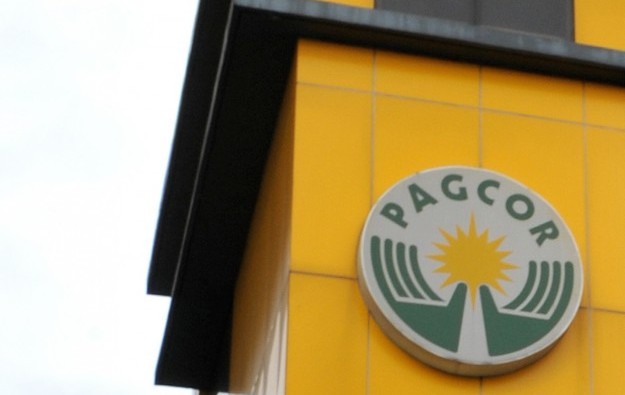Pagcor missing US$43mln revenue from POGOs: audit
Jun 23, 2022 Newsdesk Latest News, Philippines, Top of the deck

The Philippine gaming regulator must intensify its efforts to collect receivables that are more than a year old from Philippine Offshore Gaming Operators (POGOs), an aggregate amount of PHP2.33 billion (US$42.7 million), stated the country’s public spending watchdog, the Commission on Audit.
According to the 2021 annual audit on the state-run Philippine Amusement and Gaming Corp (Pagcor), the regulator had uncollected receivables from POGOs amounting to just over PHP2.97 billion as of the end of 2021. Of that aggregate, PHP2.33 billion has been classified as uncollected for more than a year since becoming due, an increase of 57 percent from 2020. Part of the receivables has been outstanding for up to five years, stated the document.
The auditors informed Pagcor of the results of the 2021 audit in a management letter dated June 13, that was published this week on the website of the Commission on Audit.
Out of the PHP2.33-billion accounts receivable that were outstanding for more than 360 days, PHP815.9 million is under “protest” by some POGOs that had been billed, according to the document. “Notwithstanding the accounts receivables under protest, the remaining PHP1.512 billion was uncollected for more than one to five years,” the public spending watchdog pointed out.
It added: “The presence of substantial accounts receivable from POGOs has been a persistent issue for several years, despite the existence of collection procedures under [Pagcor’s] offshore gaming regulatory manual.” The manual also gives POGOs until the 15th of every month to settle their dues with Pagcor.
The Commission on Audit recommended Pagcor to “evaluate/validate the accounts receivable under protest and provide the necessary adjustments in the books.” It also suggested the gaming regulator to analyst the “effectiveness of pertinent provisions in the offshore gaming regulatory manual to improve collection of regulatory fees.”
The gaming regulator stated that it had been dealing with undeclared games, websites and operations suspected to be connected to POGO licensees. In December 2017, it contracted a third-party audit platform service provider to give accurate and near real-time gross gaming revenue (GGR) from POGOs.
Pagcor added that in early 2018, POGOs were billed an estimated fee based on average income performance or average GGR for the past 30 days, multiplied by the regulatory fee percentage, since there was no definite amount of GGR from those suspected websites.
“The affected POGOs, due to the substantial amount of the regulatory fees, filed protest letters on various dates from May 2018 to October 2019. Some of the affected POGOs partially paid while some did not pay the billed amount, hence… the outstanding balances,” said Pagcor in its letter of reply.
The auditors noted that regulatory fees were not collected from seven POGOs that had filed protests on their billed fees, and that protests from four of these firms were still processed by Pagcor even if such protests were filed beyond a permitted deadline, contrary to existing regulations.
The audit commission also said Pagcor must strictly comply with the billing and collection of regulatory fees and consider imposing what it termed a “protest fee” on POGOs filing disputes.
Related articles
-
 China embassy in Manila welcomes POGO...
China embassy in Manila welcomes POGO...Jul 26, 2024
-
 RGB says ‘unaffected’ by...
RGB says ‘unaffected’ by...Jul 26, 2024
More news
-
 Donaco EBITDA up y-o-y to above US$4mln...
Donaco EBITDA up y-o-y to above US$4mln...Jul 26, 2024
-
 HK listed Palasino upgrades Czech...
HK listed Palasino upgrades Czech...Jul 26, 2024
Latest News
Jul 26, 2024
Border-casino operator Donaco International Ltd has achieved a 164.17-percent year-on-year increase in its latest quarterly group earnings before interest, taxation, depreciation and amortisation...Sign up to our FREE Newsletter
 (Click here for more)
(Click here for more)
Pick of the Day
”We’ve got more traction outside of Macau at the moment. But Macau’s going be a bigger focus for us”
David Punter
Regional representative at Konami Australia
Most Popular
 Sheraton brand to exit Londoner Macao, to be Londoner Grand July 25, 2024
Sheraton brand to exit Londoner Macao, to be Londoner Grand July 25, 2024  Macau regulator probes unlicensed gaming agents July 24, 2024
Macau regulator probes unlicensed gaming agents July 24, 2024  Philippines gives 20k aliens in POGOs 60 days to leave July 25, 2024
Philippines gives 20k aliens in POGOs 60 days to leave July 25, 2024  Philippines-listed DigiPlus says not affected by POGO ban July 24, 2024
Philippines-listed DigiPlus says not affected by POGO ban July 24, 2024  Sands China 2Q EBITDA down q-o-q amid low hold, renovation July 25, 2024
Sands China 2Q EBITDA down q-o-q amid low hold, renovation July 25, 2024





